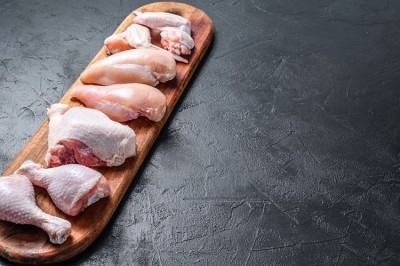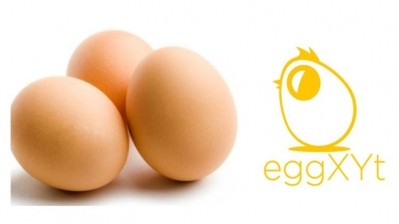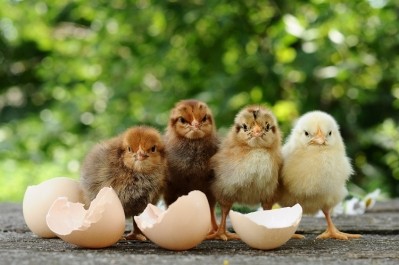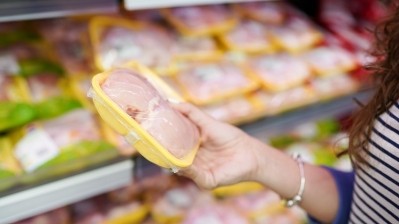France and Germany first countries to ban chick culling
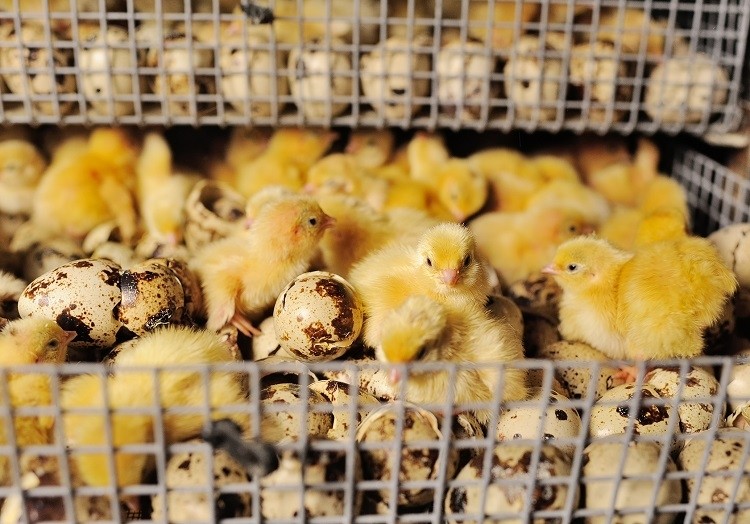
The mass-culling of unwanted male chicks is common practice in global industrial farming. It occurs in all intensive egg production, whether free range, organic, or battery cage.
This is because male chicks will not go onto lay eggs. As a result, they are considered redundant by egg and poultry producers. Further, hens are preferred for meat because they grow faster.
Ultimately, it is regarded as uneconomical to fatten male chicks. Therefore, once hatched and identified as male, they are either ‘shredded’ in industrial macerators or suffocated using nitrogen or argon gas.
Now, France has said it will be the first country in the world, along with Germany, to put an end to the crushing and gassing of male chicks in commercial hatcheries.
The ban is a major step forward, said French Minister for Food and Agriculture Julien Denormandie, which is ‘long overdue’.
Chick culling outlawed by 2022
According to the new law, in France all hatcheries must have either installed or ordered gender testing – sexage en oeuf – machines by 1 January 2022. The Council of State has stipulated that all machines should be installed and functioning in all hatcheries by 2022.
Speaking in Brussels 19 July, Denormandie said that around 50 million male chicks are either gassed or crushed each year. In Germany, an estimated 45 million chicks are culled annually.
A Bruxelles aujourd’hui pour porter la fin de l’élimination des poussins mâles à l’échelle européenne
— Julien Denormandie (@J_Denormandie) July 19, 2021
La France et l’Allemagne sont à l’initiative d’une dynamique européenne qui est en train de se créer. Plusieurs pays ont déjà apporté leur soutien pour avancer rapidement. pic.twitter.com/SRGlgprFkS
France has been working with Germany over the last two years to identify the best technology to replace chick culling, that can be used at an industrial scale.
They settled on determining the gender within the egg, which can be done by detecting the colour of the feathers inside the egg. That way, farmers can choose to only keep the female eggs.
Support for the ban
While it is the responsibility of commercial hatcheries to install the gender testing machines, the French Government is investing in the technology as part of its ‘France Relance’ recovery plan. €10m of the €100bn investment plan will be assigned to gender testing machines.
Further, to ease the financial burden on egg and poultry producers, the French Government is advocating for costs to be distributed fairly across the supply chain via EGalim 2 – a law designed to protect farmers’ incomes.
The nations have also brought the issue to the European level, urging the Commission to support its approach, as well as the Member States who wish to follow suit. Some countries have already shown their support, including Austria, Ireland, Luxembourg, and Portugal.
Elsewhere, animal welfare charity Compassion in World Farming (CIWF) has also supported France and Germany's decision.
“The industry-wide practice of culling many millions of male chicks has long been a major issue – an appalling practice where chicks are callously disposed of simply for being born male and so have no monetary value to egg producers beyond the few needed for breeding," Mandy Carter, Global Head of Campaigns at CIWF told FoodNavigator.
“This latest commitment in France, following on from Germany, is a welcome development that could have an influence on a serious animal welfare problem that has long been hidden from view, and we encourage other countries to instigate a ban.”
